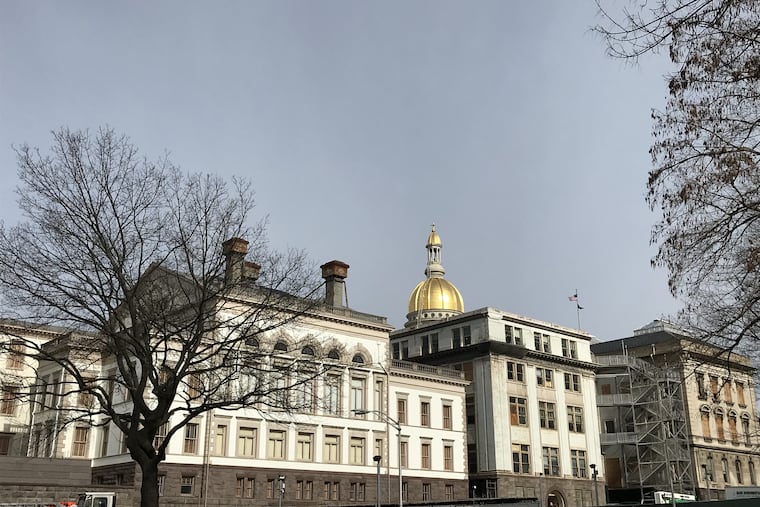New Jersey to its towns: Follow laws and best practices or lose some money
Last year, New Jersey withheld $315,375.51 from 17 municipalities, based on how they answered questions in the Best Practices Inventory.

In a yearly ritual, officials in New Jersey's 565 municipalities this month answered a long list of questions from the state about how they do business:
Did you file your budget on time?
Have you explored shared service opportunities with other local governments within the past year?
Have you taken measures to prevent employee discrimination and promote equal pay?
Have all your elected officials filed financial disclosure forms to expose potential conflicts of interest?
Is your website up to date?
Based on municipalities' answers to these and other questions, the state can withhold some aid. At stake is a total of $70 million in funding.
The state withheld $315,375.51 from 17 municipalities last year.
"In the big picture, it's not a huge sum," said Michael Cerra, assistant executive director and director of government affairs for the New Jersey State League of Municipalities. But "these are very tight budgets" and "there still is that looming threat out there."
The Christie administration started the Best Practices Inventory in 2010 as a tool for municipalities to measure how well they budget, manage their duties, and keep costs down. This is the first year of the survey under Gov. Murphy.
The League of Municipalities believes a "best practice" for New Jersey would be to do away with the survey. If the state wants to promote best practices, the group says, it should drop the funding threat and one-size-fits-all approach to the questions, and work with the league to compile reference guides.
The number and content of questions vary from year to year, but local officials' concerns endure. Some of the questions are straightforward and appear every year. A couple ask for opinions — including one about pending legislation — or were purely information-gathering. That confused some municipal officials who didn't know how they should answer and led them to question the motives behind the inquiries.
"The people who were writing up the questions read them one way, and the ones who were answering the questions read them another way," Cerra said.
Of this year's 61 questions, some evaluate how well municipalities are following or planning to follow new laws. Others measure compliance with state policy objectives. The state operates on the honor system; it accepts the municipalities' answers as true.
Officials at the Division of Local Government Services said the checklist is a way to encourage municipalities to think critically about management and planning, gauge their interest in programs, focus resources where they need them, and gather data to help shape policy.
One of the biggest problems with the inventory, said Richard Schwab, administrator of Delanco Township, Burlington County, is the one-size-fits-all nature of the questions.
"We feel a lot of them do not apply for small municipalities," like Delanco, a community of 4,500, Schwab said. Over a third of the towns in Camden, Burlington, and Gloucester Counties had populations of 5,000 or less in the 2010 census.
For example, one question asked whether municipalities employed a planner. But smaller communities may contract out or share planning services.
The state asks municipalities whether they have any hybrid or electric vehicles. But for a small community such as Delanco — with its $5 million annual budget and lack of cars for civilian employees — buying hybrid vehicles doesn't make sense, Schwab said.
State officials said as long as a local government has considered alternative fuel vehicles and other measures on the checklist, even if it decides not to adopt them, the municipality can say yes to the question — an approach that was not clear to some local governments.
One of Voorhees Township, Camden County's, three no's was for the electric vehicle question, even though Voorhees does have trash trucks and buses for seniors that run on fuel-efficient compressed natural gas.
Gloucester Township, Camden County, a community of about 65,000, has four electric vehicles and a full-time planner. The township answered yes to all but a few questions.
"I don't mind the questions. I think they're good questions," Mayor David Mayer said. "It's always good to have best practices, whether in government or in the private sector."
But, he said, the state should have a separate list of questions for smaller towns.
Officials have met with groups that represent local governments and plan to work with them to reconfigure the inventory for next year, making it more of a survey and assigning different weights to some questions.
The administration said the inventory is one of the best opportunities the state has to find out what's going on at the local government level.
"At its core, Best Practices is designed to improve local government fiscal and managerial accountability," Tammori Petty, director of communications at the New Jersey Department of Community Affairs, said in a statement.
Some questions ask for information the state already has or answers that are a given, said Larry Spellman, Voorhees Township administrator.
"In some respects, it seems like busywork," Spellman said. The township has never been in danger of losing funding in what has been a "relatively painless" process.
Agency officials said they want the inventory to be instructive, not punitive.
This year, if municipalities answer no to 25 percent or more of the questions, they risk losing a percentage of state funds — a lower bar than in previous years. State officials said they are willing to work with municipalities that score below the threshold.
This year, Delanco answered no to nine questions. The township has never scored below the funding threshold. But, Schwab said, "it's always an issue in the back of our minds."